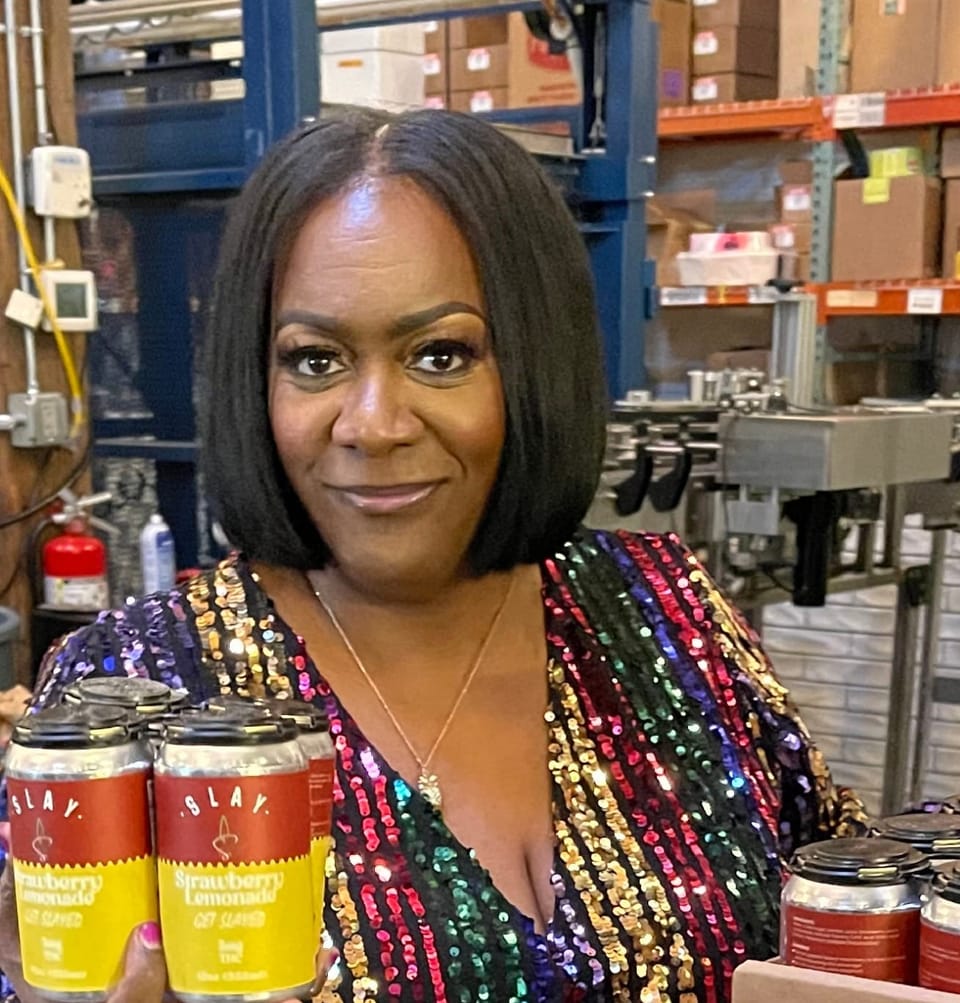Breaking Barriers: The Importance of Black Ownership in the Cannabis Industry

By Calandra Revering, Esq
The cannabis industry is on the rise in Minnesota, a multi-billion-dollar market reshaping our economy and perceptions across the nation. Yet, as this green wave sweeps across Minnesota and other states, its roots remain deeply entangled in a painful history of racial injustice. As the owner of Good Zen, the only Black-owned dispensary in Minnesota, and Slay, the only Black woman-owned THC beverage, my journey into this industry is both a celebration of progress and a reminder of the work still needed to ensure equitable opportunities for Black entrepreneurs.
For over 20 years, I have stood in courtrooms as a criminal defense attorney, witnessing firsthand the devastating impact of cannabis prohibition on Black communities while enduring my battles against discrimination as a Black attorney. Starting in private practice as a Black woman in Minnesota was almost unheard of at the time—a reality that was both isolating and disheartening. But I persisted. With every case I took and every courtroom I entered, I made it clear to the justice system that I was here to stay. These experiences have solidified my resolve to transform the cannabis industry into a space of empowerment rather than oppression.
The Cost of Prohibition: A Price Too High to Pay
Historically, Black people have paid the highest price for cannabis criminalization, particularly in Minnesota. Despite similar usage rates across racial lines, Black individuals are nearly four to eight times more likely to be arrested for cannabis-related offenses, and even higher depending on the county. These arrests have far-reaching consequences for my community—loss of jobs, loss of housing, denied access to financial aid, and fractured families, all of which fuel cycles of poverty that disproportionately affect Black communities.
The mental health toll of these profound consequences, well, there’s not enough room in this article for that discussion.
The damage extends beyond individual lives. When Black men and women are taken from their families and communities, the economic and social fabric of my community unravels, and the damage is often beyond repair. Resources that could be used for education or entrepreneurship are instead diverted to deal with the result of incarceration, joblessness, and poverty. Meanwhile, as legalization sweeps across states, the wealth and opportunities created by the cannabis industry are often dominated by those who were least impacted by its criminalization. Many of these individuals and companies exploit social equity applicants, preying on their financial hardships and manipulating the process by using their social equity status as a mere front.
Representation Matters: Why Black Ownership is Essential
The presence of Black entrepreneurs in cannabis challenges systemic inequities and sets a precedent for what inclusion truly means. Ownership is more than a financial stake; it’s a seat at the table where decisions are made, narratives are shaped, and opportunities are created. Except for Black people, we are often building our new table, bringing our own chair and inviting others to join us in discussions about laws and policies that disproportionately affect us.
The cannabis industry cannot disentangle itself from the social justice movements that paved the way for legalization. The advocacy that exposed the injustices of prohibition must now shift to ensuring that legalization is equitable. Businesses, regardless of their ownership, have a role to play. Every decision can contribute to a more inclusive industry, from hiring practices to community outreach.
Good Zen and Slay Beverage are not just businesses but symbols of resilience and representation. They remind us that Black people belong in this industry—not as laborers or consumers alone but as innovators, leaders, lawyers, and visionaries.
Beyond DEI: Actionable Steps for Inclusion
While Diversity, Equity, and Inclusion (DEI) initiatives are valuable, they are not enough, especially as governmental priorities shift away from equity-driven policies. The cannabis industry must go beyond performative efforts to actively involve Black communities. Here’s how:
1. Equity-Focused Licensing: States should prioritize social equity programs that provide Black entrepreneurs with access to cannabis licenses. Reducing financial barriers—such as high application fees and capital requirements—is critical.
2. Community Investment: Companies can allocate some of their profits to scholarships, training programs, and grants earmarked for Black communities impacted by the War on Drugs.
3. Mentorship and Networking: Established cannabis businesses must commit to mentoring Black entrepreneurs, providing them with the tools and networks necessary to thrive.
4. Supplier Diversity: Partnering with Black-owned businesses for supply chain needs—from cultivation to marketing—can create an ecosystem of support within the industry and increase wealth for the Black community.
A Call to Action
Black History Month is a time to reflect on the past and envision a better future. For the cannabis industry, that future must include Black ownership and leadership. It’s not just about correcting past injustices; it’s about building an industry that reflects the diversity and resilience of the communities most impacted by its history.
Good Zen and Slay Beverage are my contributions to this vision, but they are only a start. I urge my peers in the cannabis industry to join me in creating pathways for Black entrepreneurs and investing in the communities that have borne the brunt of prohibition. Together, we can ensure that the cannabis industry is not just a marketplace but a movement for equity and empowerment.

